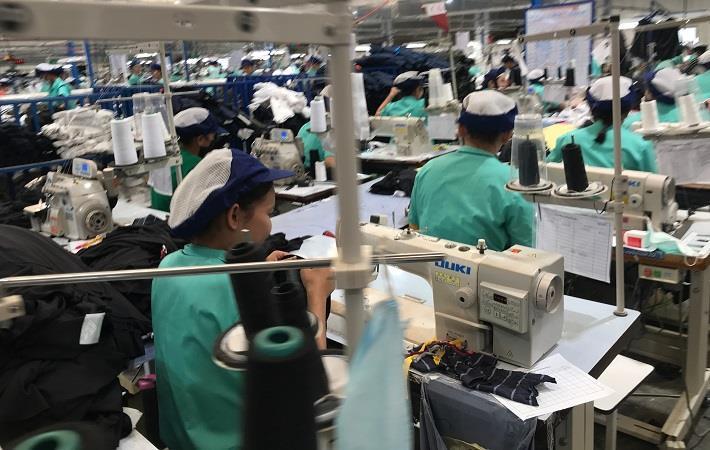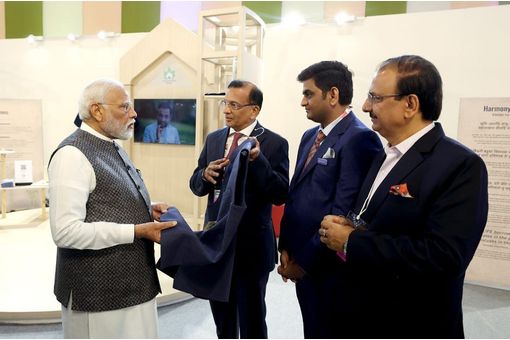Interviews
EBA issue, COVID-19 exposing Cambodia's weaknesses: AVI
28 Mar '20
3 min read

Pic: Shutterstock
The announced intention to scale back the European Union’s (EU) ‘Everything But Arms’ (EBA) preferential trade arrangement with Cambodia and the COVID-19 pandemic are laying bare the structural weaknesses of the country’s economy, which is over-reliant on the EU for market access and on China for production capacity, investment and tourist inflow, according to the Asian Vision Institute (AVI).
Cambodia's most vulnerable citizens, particularly women who work in the garment industry, low-skilled workers and those who have just been lifted from poverty, will feel the brunt of the fallout, said the independent think tank based out of the country.
The Asian Development Bank and the World Bank have each warned policymakers of the precarious state of the ‘near poor’ in Cambodia. According to official estimates, the current poverty rate is below 10 per cent (compared to 47.8 per cent in 2007). Although the nation has achieved great success in its fight against extreme poverty, more than 70 per cent of Cambodians still live on less than $3.20 a day.
The government introduced short-term measures in late February of 2020 to help employers sustain their operations, to help workers who have lost their jobs or whose work has been suspended and to support small and medium enterprises which are the backbone of the economy.
The measures include tax holidays, direct support, training programs, customs facilitation and the reduction of government expenditures. An enhanced set of reforms and mid- to long-term measures are to be announced by the government at the 19th Government-Private Sector Forum on April 1.
AVI has appealed to the government to take consider measures to support the diversification of markets, of sources of foreign direct investment, of industrial bases and of domestic start-ups, and to making small and medium enterprises more visible.
Second, more robust internal government reforms are needed to address fundamental challenges that existed well before the arrival of the pandemic and the EBA adjustments.
These reforms should focus on areas of weakness as outlined by the World Bank's ‘Ease of Doing Business’ score assessment for Cambodia: starting a business, dealing with construction permits, connecting to the power grid, registering property, obtaining credit, paying taxes, trading across borders, enforcing contracts, resolving insolvency and others.
Further consideration should also be given to Cambodia's scoring in the World Economic Forum's ‘Global Competitiveness Report’, AVI said in a press release.
Third, additional incentive schemes that target specific industrial sectors should be formulated to support diversification.
And finally, regular progress reviews must be conducted to ensure the effective implementation of measures and reforms, the think tank added.
Cambodia's most vulnerable citizens, particularly women who work in the garment industry, low-skilled workers and those who have just been lifted from poverty, will feel the brunt of the fallout, said the independent think tank based out of the country.
The Asian Development Bank and the World Bank have each warned policymakers of the precarious state of the ‘near poor’ in Cambodia. According to official estimates, the current poverty rate is below 10 per cent (compared to 47.8 per cent in 2007). Although the nation has achieved great success in its fight against extreme poverty, more than 70 per cent of Cambodians still live on less than $3.20 a day.
The government introduced short-term measures in late February of 2020 to help employers sustain their operations, to help workers who have lost their jobs or whose work has been suspended and to support small and medium enterprises which are the backbone of the economy.
The measures include tax holidays, direct support, training programs, customs facilitation and the reduction of government expenditures. An enhanced set of reforms and mid- to long-term measures are to be announced by the government at the 19th Government-Private Sector Forum on April 1.
AVI has appealed to the government to take consider measures to support the diversification of markets, of sources of foreign direct investment, of industrial bases and of domestic start-ups, and to making small and medium enterprises more visible.
Second, more robust internal government reforms are needed to address fundamental challenges that existed well before the arrival of the pandemic and the EBA adjustments.
These reforms should focus on areas of weakness as outlined by the World Bank's ‘Ease of Doing Business’ score assessment for Cambodia: starting a business, dealing with construction permits, connecting to the power grid, registering property, obtaining credit, paying taxes, trading across borders, enforcing contracts, resolving insolvency and others.
Further consideration should also be given to Cambodia's scoring in the World Economic Forum's ‘Global Competitiveness Report’, AVI said in a press release.
Third, additional incentive schemes that target specific industrial sectors should be formulated to support diversification.
And finally, regular progress reviews must be conducted to ensure the effective implementation of measures and reforms, the think tank added.
Fibre2Fashion News Desk (DS)
Popular News
Leave your Comments
Editor’s Pick
































-Ltd..jpg?tr=w-120,h-60,c-at_max,cm-pad_resize,bg-ffffff)





.jpg?tr=w-120,h-60,c-at_max,cm-pad_resize,bg-ffffff)
.jpg?tr=w-120,h-60,c-at_max,cm-pad_resize,bg-ffffff)






